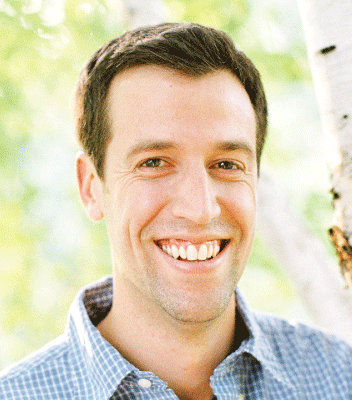2020 Janet Taylor Spence Award

Luke Hyde
University of Michigan
Michigan Neurogenetics and Developmental Psychopathology (MiND) Lab
Please briefly describe your research interests.
I am broadly interested in understanding brain and behavioral development in the context of risk and resilience. Specifically, my lab has focused on 1) the development of antisocial behavior, 2) the development of psychopathy and callous-unemotional traits, 3) the risk and protective roles of parents and neighborhoods, 4) the impact of poverty-related adversity on brain and behavioral development, and 5) how youth and families succeed when faced with adversity (i.e., resilience).
What was the seminal event, or series of events, that led you to an interest in your award-winning research?
I was fortunate to complete a “Clinical Psychology in the Community” course as an undergraduate at Williams College with Marlene Sandstrom. This course involved an internship at a residential treatment facility for adjudicated youth in upstate New York. By getting to know the boys in this facility and hearing their stories, I become interested in risk and resilience and the impact of inequalities on the development of antisocial behavior. Concurrently, I was a camp counselor at an incredible day camp in Madison, WI (Camp Shalom) that provided important support for children with special needs (and training for counselors on how to support those needs). Through this experience, I learned how much I enjoyed working with youth and families facing mental health problems.
The final major event was in graduate school–I was already receiving exceptional mentoring from Daniel S. Shaw in developmental psychopathology and the developmental of antisocial behavior, when he helped me get connected to a new fellowship opportunity on a T-32 fellowship that would allow me to train with him in neuroscience. This led to my training with Ahmad Hariri in neurogenetics and ultimately their dual-mentoring shaped the trajectory of my research.
Tell us about one of the accomplishments you are most proud of within this area of research. What factors led to your success?
I’m proud of our work showing that parenting is an environmental/non-heritable risk factor in the development of callous-unemotional traits, because I think it counters iatrogenic beliefs that callous-unemotional traits are not treatable or that “psychopaths are born” and thus there is little we can do to promote positive development in these youth. I am also proud of the work we are doing now to take a more population-level approach to developmental neuroscience. In both cases, the factors that have led to success have to do with incredible mentees and team members in my lab, and incredible and generous collaborators.
What contributions, or contributors, to psychological science do you feel have had a major impact on your career path?
My mentors in graduate school have had the biggest impact on me–both Daniel Shaw and Ahmad Hariri have fundamentally shaped the trajectory of my lab’s research, my mentoring, and my trajectory as a person. I was also fortunate to have broader mentoring from other faculty at Pitt including Susan Campbell and Stephen Manuck who really pushed my thinking in several areas and continue to have a big intellectual impact on me. Beyond formal mentors, work in developmental psychopathology (e.g., Sameroff, Ciccetti), in the development of antisocial behavior (e.g., Viding, Frick, Moffitt), and on the impact of poverty on youth (McLoyd, Brooks-Gunn) have been pivotal in my thinking. Moreover, these luminaries in the field have also been incredibly supportive people. Current major collaborators including Christopher Monk, Colter Mitchell, Nestor Lopez-Duran, and S. Alexandra Burt have each had important impacts on my career as well and continue to shape my thinking.
What questions do you hope to tackle in the future?
I hope that my lab focuses on resilience more in the near-future. We already know that poverty and its related adversities is harmful for youth. We need now to better understand why so many youth and families still thrive, even in the context of adversity. Beyond a near-term focus on resilience, I hope that my lab will eventually be doing personalized interventions or preventative interventions or policy initiatives in the long-term that are informed by the work we’re doing now. Ultimately, I feel strongly that our work must be translated to be impactful at the societal level.
What does winning this award mean to you both personally and professionally?
I am honored to be able to join the incredible list of scholars who have won this award and who are winning this award–each previous and current awardee has done such incredible science that it is an honor to have even been considered for this award. In academia we can get caught up in our own little sphere (which has lots of rejection!) and so it’s a great feeling to think that the work we’re doing is valued. More broadly, I hope the many folks who have mentored me at Pitt, at Michigan, and beyond can take this award as an award for what they have given to me.

